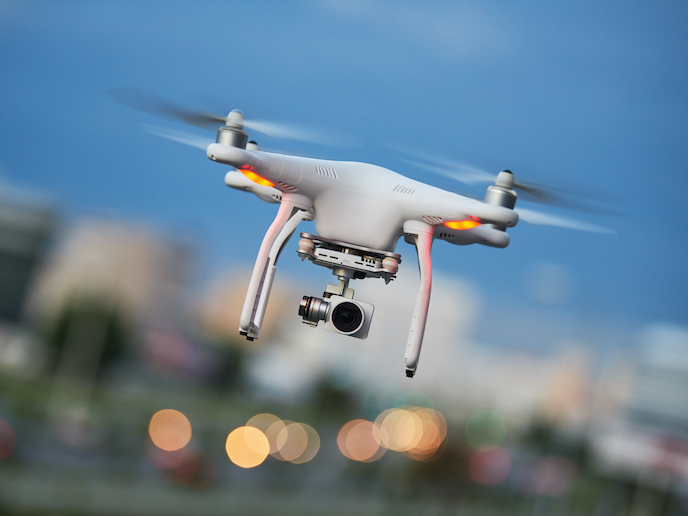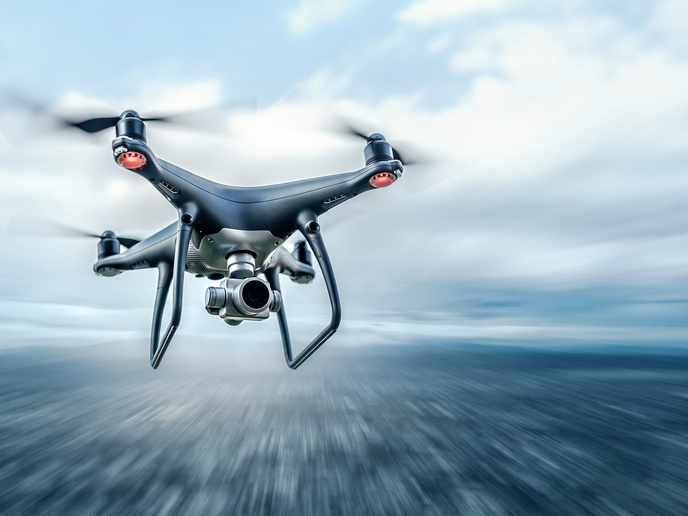Defining safety, security and privacy issues using drones in civilian airspace
Drones, once used only by military forces, are now increasingly used by civilians. The uses vary widely, from a hobbyist taking photos to supporting farmers on agricultural lands. As a result, drones are increasingly being used in civilian airspace, which brings new challenges – not least more interactions with regional ANSP (Air Navigation Service Providers). SKYOPENER, a Horizon 2020-funded project, has been developing a system to start tackling these new issues and ensure safety, security and privacy in the use of drones in European airspace. As drone application widens into areas such as search-and-rescue, there is a greater need for accessibility, reliability and functionality over longer distances. Yet, in European civil airspace, regulations require drones to stay within the line of sight of their operators, limiting their use significantly. By improving the navigation, security and reliability in the overall systems, it is possible for the policy to evolve as the technology does. The main goal of the project was to improve drone navigation system reliability and security. This was demonstrated through on-ground tests, which showed increasing robustness against jamming, and increased precision from commands. “Using GPS and the EU’s space satellite Galileo in multi-frequency combinations results in improved availability. We can be more accurate by using dual-frequency measurements and more robust when it comes to interference,” explains Alexander Butler, Engineering Director at Viasat, referring to the SKYOPENER programme. “Galileo’s inclusion in the multi-constellation concept and integration with other sensors can dramatically improve unmanned aerial vehicle (UAV) navigation accuracy, availability, continuity and reliability,” Butler adds. Other aims of the project included increasing the situational awareness of drones, developing safety systems to mitigate against human error, and developing a system with interactive surveillance for drone systems. SKYOPENER wanted to address the redundancy of certain communication systems, by developing a command system that uses multi-band satellite and radio. “We have demonstrated the ability to integrate a long-range and resilient hybrid communication system handing over between radio, cellular and satellite channels,” Butler says.
Self-inspection
The inspection system works to integrate the drones and the underlying system. The idea is for the system to be used by civilian infrastructure operators, which will open up new avenues for professional applications for drones. The end vision for the SKYOPENER project is efficient, cost-effective solutions for civilian drone applications.
Flying trials
The team carried out trials of the SKYOPENER system and drones in Switzerland. Here, they demonstrated the ability for a long-range, fixed-wing drone with a relatively small payload (3-5 kg) to collect and process sensor data of the same quality as those currently used by manned aircraft. “SKYOPENER has demonstrated that even with a limited payload capacity the data collected matches the quality of manned airborne platforms,” says Butler. The tests were extremely successful and open up the project to expanding the overall system infrastructure. “The quality of data collected by the SKYOPENER system not only meets, but also exceeds the end-user requirements. The UAV is just one part of a large and complex system integration of many components,” Butler adds. The problem now, Butler explains, is getting policy to match up to the team’s desire to do more testing: “Regulation is still a barrier for getting flight authorisation on a regular basis.”
Keywords
SKYOPENER, drone, civilian, military, navigation, system, hybrid communication system, UAV, unmanned aerial vehicle







